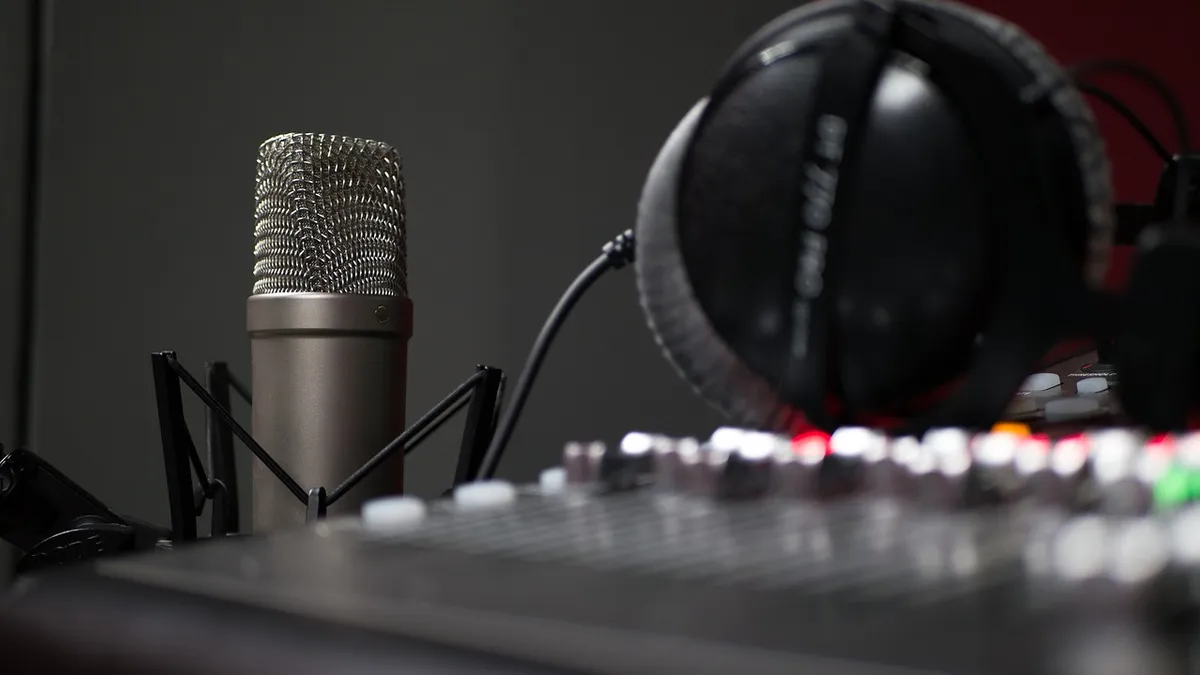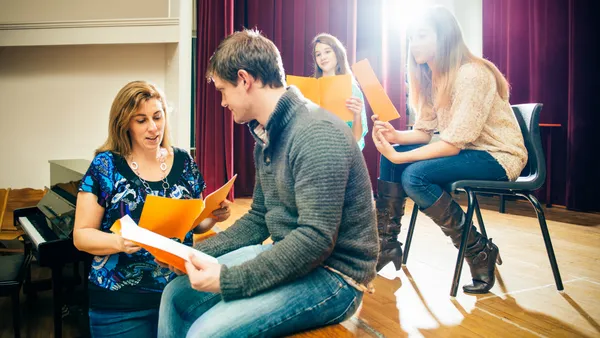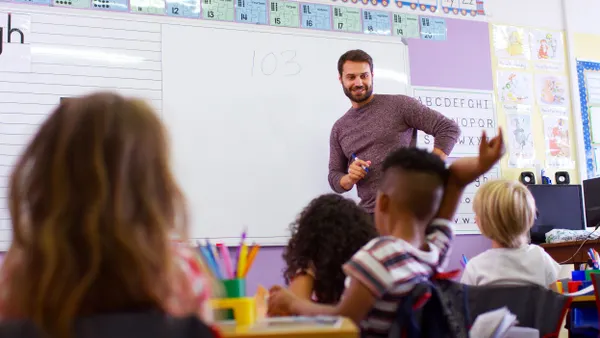Dive Brief:
- Educators can use podcasting to engage students while touching on learning standards for writing, reading, speaking and listening — and some see the benefits of podcasting as even wider, giving students a chance to see the impact of their learning beyond the classroom.
- While podcasting can impart media and digital literacy skills, Joe Bryant, broadcast media teacher at Mercer Island High School in Washington state, said he has seen how some students have used the format to find their voice. Bryant is also general manager of KMIH 88.9 The Bridge, the high school’s radio station.
- “They’re going out there, learning technical how-to, and using their ears and creativity to put together a product that is informative — but also something entertaining and that builds a brand for themselves,” Bryant said. “They put that out into the world, beyond the classroom walls, and it gives them a chance to tell their story, and in a way that amplifies it on a worldwide stage.”
Dive Insight:
Bryant said jumping into podcasting doesn’t need to cost a lot of money for a school. While a fancy studio can bring some nice perks, educators can launch a program with tools that schools likely already have, such as a laptop computer and a $25 microphone, Bryant said.
“While it’s great to have a nice studio, the barrier to entry is not that big,” he said. “You can get set up for a low price and have it sound pretty good.”
The results? Bryant has personally seen his students amplify their abilities — and several have won national awards. In 2023, Mercer Island students won three of the top 11 spots in The New York Times Student Podcast Contest, as well as the Best Mental Health Podcast Prize in NPR’s Student Podcast Challenge with Grace Go's series “Discomfort Food.”
More than 150 students are involved in the podcasting program, and Bryant is familiar with the level of work they put into their projects. He also knows that students walk away with skills more useful than just recording an interview and uploading it online.
Instead, he said, students learn how to interview, create questions that force people to answer beyond “yes” or “no,” and edit their final product. Ultimately, they uncover what they want to express and how to say it well.
“They’re not only learning, but this gives them the confidence in a public forum and a positive social media imprint even before they’re in college,” Bryant said.











